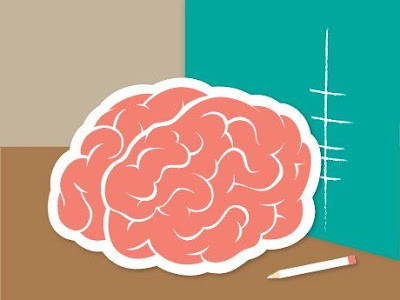Feedback Thoughts: Negative Feedback and Perfectionism
"Feedback". Source: Flickr
The first article I read was by Tim Herrera, entitled "Why It’s So Hard to Hear Negative Feedback". It was the first one that caught my attention because I know I am someone who often shies away from any type of feedback (positive or negative). My favourite part of Herrera's article was where he discussed that we are often afraid of negative feedback because we aren't sure if everyone is giving it in "good faith". Sometimes I've caught myself questioning a person's intentions, even if they say they're just trying to be honest. I really liked that he suggested framing negative feedback in a way that leaves room for improvement, or better yet, gives ways to improve. I definitely like feedback that helps me improve. At the university level usually all we receive is a grade unaccompanied by comments or reasons, and I think that that 'bad' grade acts as our only feedback. I always like to know why, and I think getting caught up in this one note system makes it difficult to also tell the difference between good, constructive feedback and bad feedback. I want to definitely try to give feedback in the ways described by Herrera's article. The best feedback I've received has definitely been when people point out both the good parts and the bad parts of my work. Perhaps pointing out the good parts cements the idea that person has reviewed your work in 'good faith', while giving negative feedback suggests that they are also there to help you improve and are looking at it with a critical eye. I think this article actually went hand-in-hand with the second article I read which I related to, "6 Hidden Downsides of Perfectionism". Especially when it comes to my academics, I tend to seek perfection, and I was even guilty for the very first description of the hidden downsides that Celestine Chua discusses: procrastinating for perfection. I think perfectionists tend to be especially sensitive to negative feedback because they are already very critical on themselves, and they may be extremely invested in their work. Another point that Chua mentions is that perfectionists often dwell on past mistakes, and so negative feedback on one project might come back to haunt them on another. I skimmed the tips on overcoming perfectionism, and I think they were really great and tied back into accepting feedback and learning how to handle it. One such tip was "learning to love and respect yourself". I think one part of being able to handle any kind of feedback is being confident in yourself. That confidence is needed in order to, when someone gives us harsh feedback, say "alright those are some good points, and just because I need to work on that paper/essay/concept doesn't mean there's anything wrong with me". It's hard to make that separation and I still struggle with that. I think some of my most negative experiences with feedback haven't been necessarily because of the feedback itself, but because I took it personally. But I think the best way to look at feedback is as a challenge to improve, to grow and to learn.
"I'm ready for a challenge" (The challenge of feedback). Source: Growth Mindset & Feedback Cats by Laura Gibbs





Comments
Post a Comment